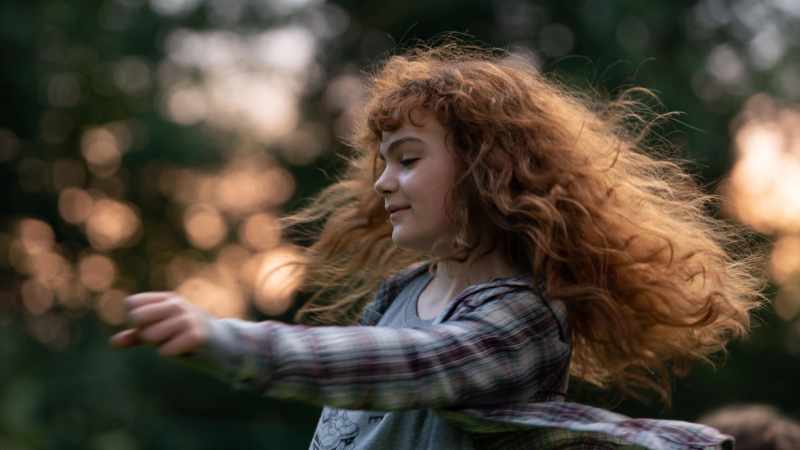



































French director Emmanuelle Nicot undertook extensive research into the care system and the children whose lives it concerns in order to prepare for her startling debut feature, . This is evident throughout her film, which handles the repercussions of abuse with profound empathy. Featuring a captivating performance from its young lead, Love According to Dalva is a powerful take on the contemporary trauma narrative.
When she arrives at her new temporary home, Dalva (Zelda Samson) is appalled and humiliated. Separated from her father, who she refers to as Jacques, she is unable to understand why everyone keeps talking about her like she is a victim. To her, the sexually abusive relationship they had, after he kidnapped her years ago, is called love. Baffled by her new surroundings, 12-year-old Dalva is also unaccepting of her status as a child. She wears makeup, dons absurdly outmoded clothing, and speaks like a gentlewoman from a bygone era (at one point she describes women smoking as “vulgar”).
Nicot has no time for the morbid fascination with abusers that characterises so many stories like this. Her attention is focused solely on Dalva as she becomes acquainted with the childhood she has previously been denied. The camera’s intimate framing and narrow aspect ratio cling to the protagonist, who is as initially inscrutable to us as to the adults entrusted with her rehabilitation. Extreme close ups capture Dalva’s obsessive study of other female characters. She is drawn to their jewellery, lipstick, hairstyles – the things she believes make up the anatomy a woman. Without the affirmation of her abuser, Dalva attempts to reify her identity through objects, like relics from a previous life. When her own body inconveniently reminds her that she is in early adolescence – bed wetting, her first period – the artificiality of Dalva’s womanhood is laid bare.
 f
f
The film’s almost intrusive closeness to its central character means the piece simply wouldn’t work without Samson’s bewitching performance. The actress displays such premature wisdom in her portrayal of the role, that we become as fascinated, and disturbed, by the workings of her mind as that of her character. Her physicality is also remarkable: when she trashes rooms, fights with other kids and bangs her head against doors in self-harming rage, her tiny body seems super human, as if in some ways it has cheated childhood as her mind has. Similarly impressive is the cast of child actors around her, most notably Guirassy, who also carries a subtly devastating maturity that betrays her character’s underlying trauma.
Without performances of such magnitude the film would suffer greatly. Its script is sparse and its structure is conventional; the denouement will come as no surprise to anyone. Perhaps Nicot’s dedication to verisimilitude comes at the expense of dramatic tension. As the film hits increasingly familiar coming-of-age beats, it starts to feel like we’ve seen this all before.
But rarely have we seen it done like this. Tactfully avoiding the temptations of melodrama, the film’s most gripping moments are uncomfortable meetings, telling glances, miscommunications. Handling the weightiest of subject matters with a light touch, Love According to Dalva is about so much more than the unspeakable trauma at its centre. It’s a heartfelt meditation on the construction of meaning and identity.
Love According to Dalva is in cinemas on Friday, April 28th. On BFI Player on Monday, September 11th.
















